AC vs heat pump in Portland, OR
AC vs heat pump - which one do you have and why?
We are going thru proposals to replace our 30 yr old gas furnace and install AC (house doesn't have central air). Trying to finalize our choice between high efficiency furnace/AC or hybrid combo of HP for cooling/some heating with a high efficiency gas furnace for colder weather. We are looking at either 2 stage for both or variable speed. Brand we are looking at is Carrier, mainly b/c the contractor who carries Trane hasn't gotten back with estimates. And I am aware of the SEER and other ratings. Probably be in the home another 8-10 yrs.
I have done quite a bit of reading and feel like I have a decent grasp of the pros and cons of each. I am interested in knowing which one you have and why. Trying to get as much info as possible to make the best decision. Unlike a car, you can't test drive one of these system first.
A few things i am esp interested in:
1. if you added a HP (or switched from AC) and had a gas furnace, how different did the heat from a HP feel to you vs the furnace? the heat produced by a gas furnace is warmer than that produced by a HP, and can be an issue with some.
2. If you have exp. with this and kept both systems well maintained, did you find an AC lasted longer than a HP?
3. I hear a lot about how efficient the HP is. But the amazing stats on efficiency I have to think apply if your total heating is electric heat. Natural gas prices are pretty low, and replacing our 80% efficient furnace with a high efficient furnace , i am having a hard time understanding if this HP advantage applies. I don't think it does. And the contractors I am talking to says don't go HP only for the sake of efficiency if you already have gas heating.
4. Since our upstairs gets esp warm, we are considering zoning. However due to its expense, we will probably rule that out. We just came off a weekend of historically high temps for the area -- 115 degrees. Pretty unusual, but we aren't opposed to supplementing a slightly warmer upstairs with a portable should temps require. that seems cheaper than zoning. pretty expensive. One of our contractors that i am leaning to suggests not doing zoning b/c of our set up, that we may be fine upstairs since the new system will be better and provide cooling where we don't have it now. Then if we still feel like more cooling is needed, explore other options (whole house fan, hi volume registers or similar).
Also planning on getting ducts cleaned. then would like leak testing. One place is pitching, if the leakage is beyond an acceptable level, then sealing the ductwork with Aeroseal. All of that would add about $2k. Anybody gone this route with Aeroseal?
thanks.
Comments (8)
CoolAir Inc.
2 years agoIff you are asking to choose in etween oth thena heat pump is better as it provides both.
HU-867564120
2 years agolast modified: 2 years ago1. Heat pumps definitely have a cooler discharge temp. If you are in the way of the vent draft it could be an issue. Many times it is individual dependent, some mind it, some don't. We have a ground source heat pump and we don't notice any temp issues with the cooler discharge (~85F nominal).
2. Mechanically, a heat pump is essentially just an air conditioner with a reversing valve for the refrigerant. The major components are essentially identical, so the higher winter + summer run time of a heat pump will likely result in a lower system life. It's the nature of the beast.
3. I agree. Are you going to stay with an 80% furnace or go to a 90+ efficiency furnace? What is the installed heat pump costs versus the installed air conditioner + furnace cost? Any up-front difference there to offset any higher operating costs of a heat pump in heating mode?
4. Obviously, your ductwork was designed for heating-only, so I would not be surprised if you had sub-optimal cooling upstairs in the summer with the new system. Do you have individual bedroom returns or bypass ducts connecting the BR's and the hallway? Where are your air returns located? How is your insulation, window leakage, etc.? They all can/will have an effect on system comfort. Zoning can be a headache, I would not expect to find many pros that are experts at it. There are other retrofit zoning systems besides just installing a plenum damper near the furnace. One such system is Flexdamper where an inflatable bag is placed into the duct at/near the register and a small plastic air line is snaked through the ductwork back to near the furnace and and exited to a control box. In this way, the control system can inflate/deflate duct bags to turn vents on or off and direct conditioned air to where it is needed. In older houses, it is a way to zone without being invasive to opening walls, etc. Also, was shown on either This Old House or the Ask This old House TV show.
https://www.retrozone.com/Catalog/flexdamper/flexdampers.htm
5. Aeroseal was also shown on This Old House, and I have seen it at trade shows. IMO, its a fantastic product for leaky systems. Tolerating leaky HVAC ductwork just doesn't make sense to me.
West_Coaster thanked HU-867564120sktn77a
2 years agoJust FYI, heatpumps are sized for cooling. This frequently results in a heating capacity that won't keep up with the coldest weather, hence the need for backup heat (electric or gas). Unless you live a very cold climate, gas backup systems are rarely worth the up-front costs. And if you do live in a very cold climate, the heatpump isn't going to add much over a straight AC/ furnace system.
Just my two cents worth, but I think these "Dual Fuel" systems are mainly beneficial to the selling dealer's bottom line!
Austin Air Companie
2 years agoPortland, OR is not my idea of a really cold winter climate.
so if you have gas heat already, probably best to stick with that (run time reasons). Or if your goals are to install solar panels at some point it might be better to convert to electric. If the house is electric only, heat pump is a no brainer in that situation for a lesser that cold-cold climate. The less you need costly back up electric strip heat, the better.
Just realize *if* you convert from gas to electric + solar it *might* take you decades to realize any monetary benefit from that decision. (based on cold weather run time of the particular climate you're in... a 3 month winter climate just isn't long enough in most cases.)
Dual fuel options are more costly... due to controls needed to pull it off for proper operation.
The equation also heavily depends on current utility rates. Over 20 cents per kwh for electric and it will pay you back at faster than double the time it would if you were around 10 cent per kwh.
I service the Katy, Texas area.tigerdunes
2 years agoOne time i agree with Austin. bc of your mild climate, I would stick with gas furnace and AC. stay away from HP. gas/AC combo is a better deal if only becaûse of average equipment life. on gas furnace, your choice on eff whether 80% versus 95+ efficiency. control is up to you on how fancy you want to go on bells and whistles. insist on best matching evap coil and add whole house pleated filter medís cabinet if you don’t already have one.
TDWest_Coaster
Original Author2 years agoThank you all for your input. It has been very helpful. I also posted similar detail on Nextdoor to get feedback from neighbors. Between this forum, Nextdoor, and my own comprehensive research (or at least trying to be), we decided to go with a 2 stage AC over heat pump and replace our gas furnace with a high efficiency, 2 stage furnace.
Here is what it came down to:1. Cost. The difference in going HP vs AC with the contractor we selected was almost $2700 (the other contractor was just over $2100). See #2.
2. One of the Nextdoor responses came from an Energy Engineer for a company in town and she has a strong academic and professional background in the field (thanks, Linked In). She responded with this:"In terms of cost think about it with some numbers... let’s assume a furnace with 12,000 Btuh capacity and 85% efficiency... the cost of running the equipment per each hour would be 12,000 (BTUh) / 1,000,000 (BTU/Mcf) * 11 ($/Mcf) / 0.85 (%) = 0.155$/h while for a HP with the same capacity and a COP of 3 the math says 12,000 (BTUh)/ 3412 (Btu/kWh) * 0.1 ($/kWh) / 3 = 0.117 $/h.
85% efficiency was used on the furnace because that is roughly the average operating efficiency of a high efficient furnace, if you want to assume perfect operation and go with 95% still you would get to 0.147 $/h, which is still more expensive than using a heat pump. COP is the coefficient of performance of the heat pump, which is simply its efficiency. In simple terms is like saying it had 300% efficiency (yes! It is possible and actually HP get even to a COP of 4 or higher in certain conditions!). You can find average commodity prices at https://www.eia.gov/dnav/ng/hist/n3010or3m.htm"
I knew comparing kwh and btu was tough, and I'm not sharp enough to figure it out, so having this equation was important. Taking her numbers and calculating use of the HP for 9 months of the year, 12 hrs a day (it wouldn't be that much but it gave me something quick to compare) only showed a savings of the HP of about $120 or so. That's a payback of 21 years. Not only is that long, but we are going to be here another 8-10 yrs. Plus, most of my research indicates HP doesn't last as long as AC (tho some would disagree and say they have an equal lifespan).
My local electricity company told me to use $0.13/kwh + fees, and my gas company told me to use $0.95/therm.
3. Heat produced by a HP is less warm than from a furnace. That was a potential issue with the boss of the house. And others have told me HP feel "draftier."
4. Lifespan of AC over HP. Again, there is some debate on this.
Between about a dozen people i spoke with at work and those on Nextdoor, most people seem to be going the HP route, From a numbers standpoint in our case, it didn't work. There is the perspective of a HP being more environmentally friendly. That is important to us. But in this case, it wasn't $2600 important.
Couple related questions:1. One of the above respondents said the ductwork in our house was optimized for heating and not cooling. How would the ductwork be any different if AC was installed when the house was built?
2. Another poster said duct cleaning isn't needed. The boss of the house really wants it. why do you say it isn't needed?
thanks all!Austin Air Companie
2 years agolast modified: 2 years agoHeat pump efficiency in terms of monetary performance (what it costs to operate) is best compared to electrical strip heat. Because without really doing or needing to do math to any large extent the typical $monetary$ efficiency gain is roughly 75% better than electric strip heat.
So for every $1.00 you spend on electric heat strip you could have only spent $0.25 for heat pump heat. BUT: in a cold climate that heat pump will have to defrost. The colder it gets in your climate, you will need back up heat... which is usually electric strip heat. The heat pump will have to go into defrost mode. This is why HP's are best for warmer *winter* climates.
The con in using a HP in a warmer winter climate is spending that additional cost up front for using heat for a few weeks to a month of the year? So even in a warmer winter climate in an all electric house a HP can be a hard sell.
----------
HP's are draftier. Yes and no. When the HP is cranking out the heat, It's hot. Only when the temps breach about 35 degrees or so and stay that low for long periods. BUT: we're in a warm climate with lows typically in the 40's and sometimes only the 50's. --- Yeah, that's why they can be a hard sell. (The technology has greatly improved since the early 2000's. Anything can break though so it is what it is. Even AC's can break prematurely.)
Some HP's perform better: Inverter HP's. Not only in heating mode, but also AC mode. I made a video embedded below, but I strictly go over AC mode only.... because most here are on gas heat and so... well it's a complicated subject. I provide the video here mainly so if this interests you, you will better understand what an *Inverter* is. (How it works, why you would want one.)
Just realize that inverters are not created equally. Some manufacturer's limit them to merely 5 stages of functionality.These inverters cost even more, but they typically will cut your electric bill in half, just on the AC mode side of operation. Even more when compared to electric strip only heating mode, with much better performance of heat produced clear down to 5F in heating mode.
-----------
Life span. It's complicated. Of the heat pumps that I've come across in the field... which is rare by the way in my climate... they were all older than 15 years.
The other not thought of con is that there is no limitation to gas or electric heat for that matter when operating in cold weather. Cold meaning typically in the 20's and lower.
The heat pump gradually loses it's ability to put out more and more heat as the temperature falls. Also in snow producing climates if snow drifts bury the heat pump, it's not going to operate well in those conditions either.
----------------
Couple related questions:
1. One of the above respondents said the ductwork in our house was optimized for heating and not cooling. How would the ductwork be any different if AC was installed when the house was built?
I believe this is mostly related to cold air falls vs. hot air rises debate. Returns are placed low to the floor. In high ceiling areas and summer time conditions, heat gets trapped at ceiling level with no where to go... unless there's ceiling fans circulating things. If ceiling height is more moderate 9-10 ft. It may go unnoticed except for extreme heat wave conditions.
2. Another poster said duct cleaning isn't needed. The boss of the house really wants it. why do you say it isn't needed?
thanks all!
If you have unfiltered returns leading to equipment with filter(s) just before equipment. Those unfiltered returns are typically what is used in duct cleaning ads.
Many on this board recommend placing these 4-5 inch filters before equipment... thus leaving the returns unfiltered.
Beyond the filter. In the equipment and further down stream (supply air plenum and duct work) The dirt if any... is very fine and so miniscule that it would take some really high dollar equipment to get that dirt out. Unless they video every section of duct work they touch you won't know it's clean and it *may be* as clean as it's going to get.
If duct work is so old that it's believe to be that dirty, you should probably replace it. There is nothing cleaner or more efficient than properly designed and insulated new duct work. BUT that's expensive. Well, duct cleaning is a lucrative field. They get in your door with a cheap advertised cleaning cost of $99 a system. But the end result is no where near $99. The oldest con game in the book. "High pressure sales." These people know what buttons to push to get that price up. Especially in a fear driven pandemic era of cleaning things. (no one makes enough money at $99 a system to stay in business, do not kid yourself. )
I service the Katy, Texas area.

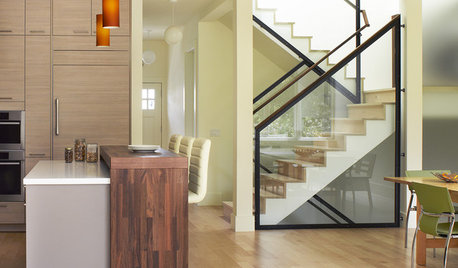
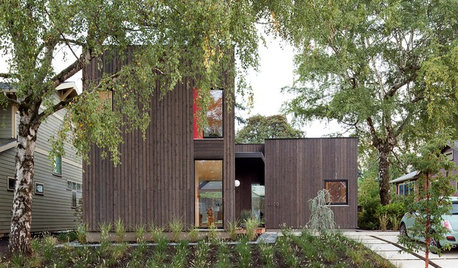

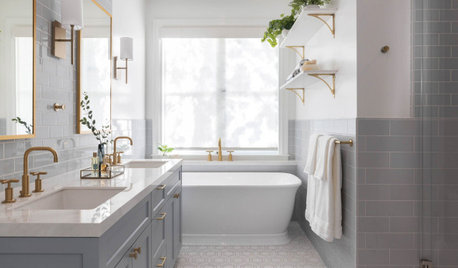
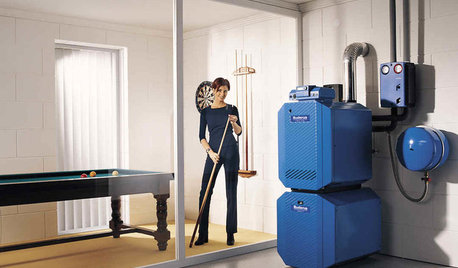
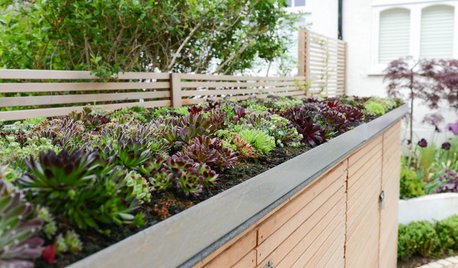
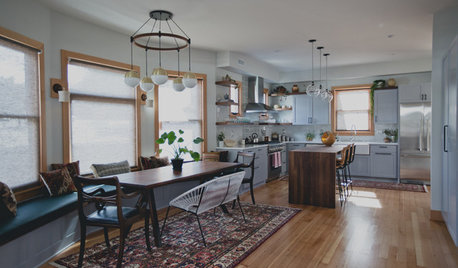

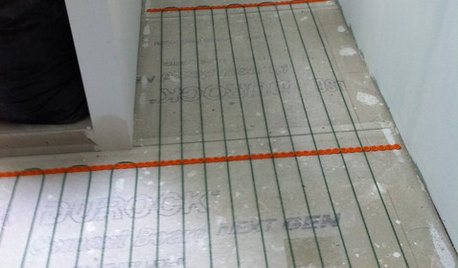



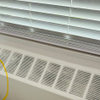
mike_home